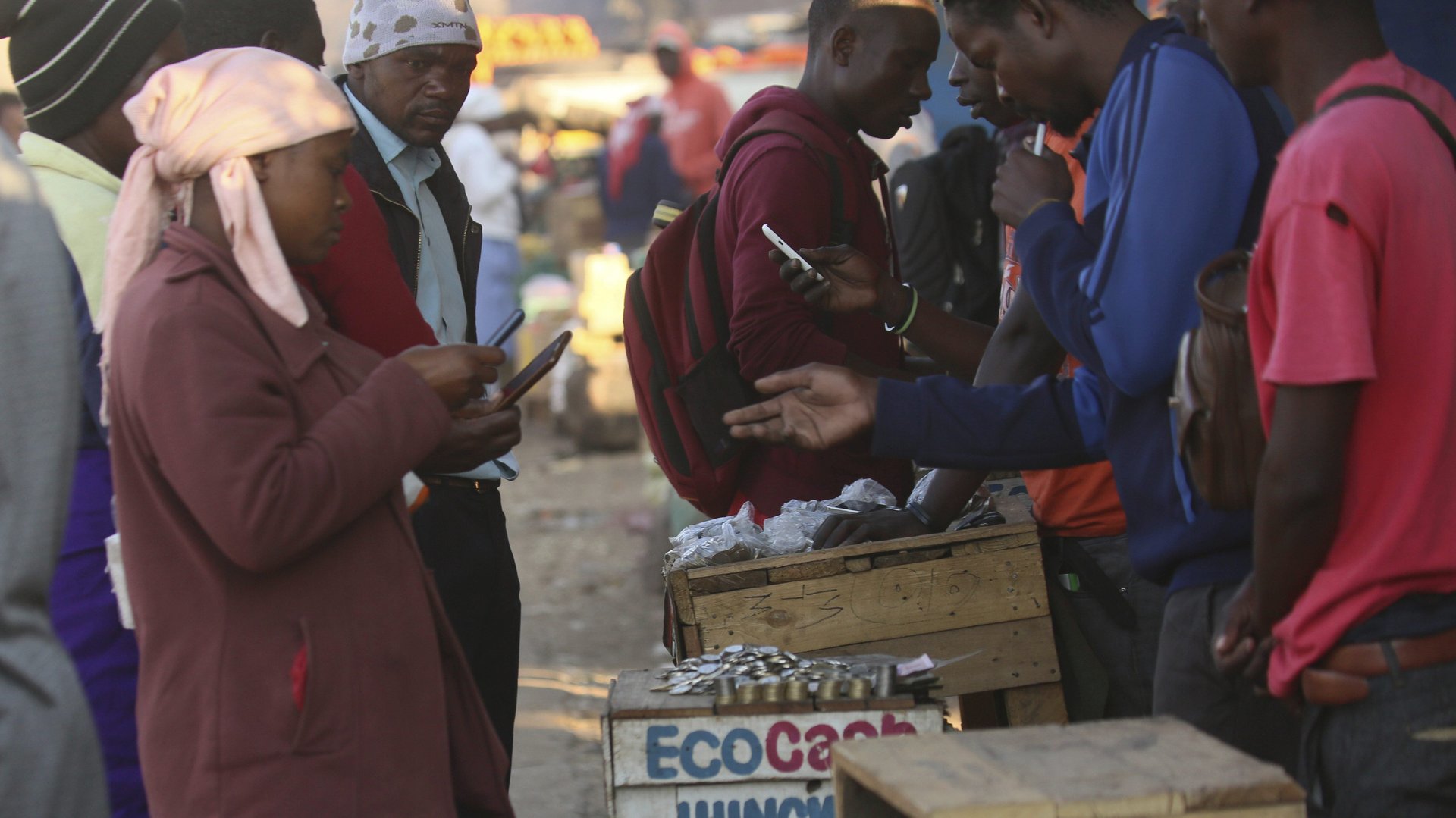Zimbabwe’s central bank has reversed its ban on mobile money-for-cash transactions
Zimbabwe’s central bank has lifted its ban on mobile money to cash transactions after three days of public outcry and criticism even as the government continues to struggle to contain the country’s economic crisis.


Zimbabwe’s central bank has lifted its ban on mobile money to cash transactions after three days of public outcry and criticism even as the government continues to struggle to contain the country’s economic crisis.
The Reserve Bank of Zimbabwe (RBZ) on Monday (Sept 30) had issued a directive for all mobile payment system providers and merchants to discontinue cash in and cash out services. It did so after accusing mobile money agents of piling more misery on citizens by charging high rates with cash in and cash out transactions thereby effectively devaluing the Zimbabwean dollar against its US dollar benchmark on the parallel market.
Zimbabwean mobile money agents, mostly with the dominant EcoCash platform, have been capitalizing on cash shortages in Zimbabwe by buying cash for re-sale to mobile wallet holders at a premium of up to 50%. This means that when trying to access funds in your mobile wallet through the agents, one would only get about 50% of their balance.
This has given rise to the high premiums on cash and also occasioned heavy discounts for cash purchases in retail outlets.
Cash-out is the process of converting mobile wallet balances into hard cash while cash-in refers to the process of depositing cash into a mobile wallet. Mobile money agents facilitate these processes and normally, the agents have to get the cash from banks against their mobile money balances which are referred to as “float”. These agents then act as mini banks, basically facilitating deposit or withdrawal of cash (cash-in and cash out respectively) by account holders from mobile wallets.
After receiving heavy criticism on social media and a High Court challenge by Cassava Smartech Zimbabwe (the parent company of mobile money leader Ecocash, the RBZ reversed its ban. Nonetheless, there is now a limit on cash out facility of 100 Zimbabwean dollars per transaction down from a previous limit of Z$500 while the existing operational cash limit remains the same.
In a press statement in Harare on Wednesday (Oct 2) RBZ Governor John Mangudya said the central bank was putting in place enhanced mechanisms to curb the abuse of the payment systems.
He said the RBZ will be injecting cash into the economy without changing monetary supply adding that “in this regard, banks will exchange existing RTGS (Real Time Gross Settlement) balances for cash, thus maintaining the monetary base unchanged.”
According to the new data released by International Monetary Fund annual inflation in Zimbabwe was 300% in August.
Mobile money is fast blossoming in Africa, boosted by rising mobile adoption across the continent.
Zimbabwe has had cash shortages as its economy continues to struggle and mobile money has been essential for most daily transactions by Zimbabweans. Large chunks of the country’s economy runs through electronic systems and mobile money, which is dominated by Econet’s Ecocash with 95% market share. It’s estimated to have around 5 million transactions a day moving more than $200 million.
Most recently Ecocash has struggled to maintain the mobile money system working round the clock as the country has been hit with electricity shortages which have forced it to consider options including Tesla Powerwall storage batteries.
Sign up to the Quartz Africa Weekly Brief here for news and analysis on African business, tech and innovation in your inbox